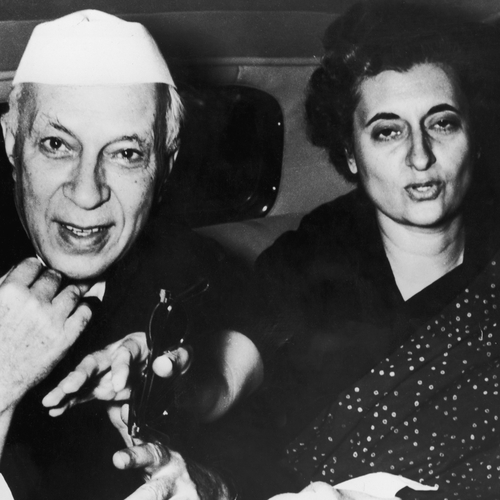When anyone in the English speaking world hears the number 1984, the first reaction is to remember George Orwell’s dystopian novel in which a Big Brotherly government completely controls people. However, in India, the number refers to a terrible year when on this day (31 October, 1984) Indira Gandhi was assassinated and horrific violence erupted across the country.
Sadly, we’re a nation with short memories, whitewashing history to remember the good and forget the bad. It’s quite ironic that a nation can celebrate Indira Gandhi, even while deploring the tyrannies of the Emergency.
So on the same day that the Congress releases commemorative ads to remember one of their strongest leaders, the talk about the anti-Sikh riots that followed, at times instigated by Congress leaders is conspicuous by its absence.
To do a quick recap, under Indira Gandhi’s command in 1984, the army got better of armed Khalistani protestors and the incident took place at Akal Takht, one of the holiest Sikh Shrines.
This infuriated Sikhs across the country and two of Indira Gandhi’s Sikh bodyguards – Beant and Sawant Singh – opened fire on her. Indira was rushed to AIIMS where she was declared dead later in the day.
A day later on November 1, violence erupted and continued in areas of Delhi and across the country where it’s estimated that over 3,000 Sikhs were killed in Delhi and there were allegations that senior Congress leaders like Jagdish Tytler and HKL Bhagat were complicit in instigating people.
Jagmohan Singh Khurmi wrote in The Tribune: “Such wide-scale violence cannot take place without police help. Delhi Police, whose paramount duty was to upkeep law and order situation and protect innocent lives, gave full help to rioters who were in fact working under able guidance of sycophant leaders like Jagdish Tytler and H K L Bhagat. It is a known fact that many jails, sub-jails and lock-ups were opened for three days and prisoners, for the most part hardened criminals, were provided fullest provisions, means and instruction to “teach the Sikhs a lesson”. But it will be wrong to say that Delhi Police did nothing, for it took full and keen action against Sikhs who tried to defend themselves. The Sikhs who opened fire to save their lives and property had to spend months dragging heels in courts after-wards.”
The Nanavati Commission which was established by the government in 2000 to investigate anti-Sikh riots described the horrors of the time: “The Sikhs were beaten and their vehicles were burnt. Till then, the attacks were made by persons who had collected on the roads to know what had happened and what was happening. They were stray incidents and the attacks were not at all organised. The mobs till then were not armed with weapons or inflammable materials. With whatever that became handy, they manhandled Sikhs and burnt their vehicles. There were stray incidents of damaging houses or shops of the Sikhs.”
Why is it important to remember this? Because we seem to live in times where even 31 years, later the nations seem even more polarised, despite what our leaders keep telling us about ‘manufactured dissent’. They tell us that incidents of communal violence are isolated, that the authors/painters/filmmakers and their ilk returning awards or people questioning their dissent have ulterior motives.
The truth is that violence of all forms is abhorrent, irrespective of who’s in power or which religion or ideology you support. In Johannesburg in South Africa there’s something called the Apartheid Museum, which remembers the horrible tyrannies of segregation. Similarly there is memorial at Auschwitz in Poland to remind us of the Holocaust or closer home the monument that stands at Jallianwala Bagh.
The point of these monuments is to remember that violence has consequences, that we should never lose our grip on our humanity, irrespective of what hatemongers tell us. We must guard against the apathy, the inciting of violence by a few and let us not just remember Indira on this day but the thousands of others who lost their lives on this day for no fault of theirs other than to belong to a particular religion.
Their deaths as with the deaths of all those who lost their lives in communal violence whether it’s in 1947, 1984, 1992 or 2002 or any of the riots that followed are all acts of violence which are equally deplorable and no justification should ever be given for these deaths. That’s why Rajiv Gandhi saying: “When a giant tree falls, the earth below shakes’”, is deplorable and no justification should ever be made to defend such acts, particularly for a leader of the nation.
As for those of who are alive in 2015, we have to stop the whataboutery that exists when talking about dissent. We have to stop questioning the dissenter’s personal life or political ideology and examine whether the question of dissent actually serves any merit.
And most importantly, we’ve to remember that although we can’t change the past and undo the mistakes that were made; we can ensure that it never happens again.
http://www.dnaindia.com/india/report-indira-gandhi-s-assassination-why-we-should-never-forget-1984-anti-sikh-riots-2140555
- .com)

Leave a Reply